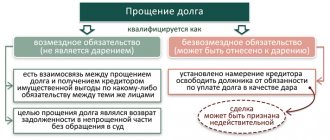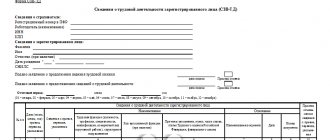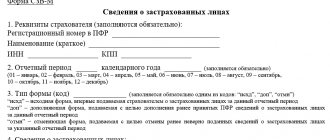Increase in VAT rates from 2021
The last VAT increase took place in 2021. Then the basic VAT rate was raised from 18 to 20 percent. This entailed many consequences (in particular, an increase in the cost of some goods).
However, from 2021 the main VAT rates have been retained. Yes, there are quite a lot of VAT changes from 2021. But they did not affect the main rates. For more information about this, see “ How VAT has changed since 2021. ”
Basic VAT rates in 2021
In 2021, there are several basic rates for calculating VAT - 20%, 10% and 0%, and several calculated rates - 20/120, 10/110 and 16.67%, which are used depending on the type of transaction:
Rate 20% percent
This is a general rate that applies to most transactions (clause 3 of Article 164 of the Tax Code of the Russian Federation). At this rate, tax transactions that are not specified in the Tax Code of the Russian Federation as grounds for applying other rates.
Rate 10 percent
The rate at which tax is calculated on the import and sale of certain goods, as well as on the sale of certain services. In paragraph 2 of Art. 164 of the Tax Code of the Russian Federation indicates goods and services, and in the lists approved by the Government of the Russian Federation - product codes. For example, this rate is applied when selling food or medical goods (clause 2 of article 164 of the Tax Code of the Russian Federation).
A rate of 10% can be called reduced. It is used for the import and sale of socially significant goods, as well as for the sale of certain services.
Rate 0% percent
Applicable for export, international transport and other operations listed in paragraph 1 of Art. 164 Tax Code of the Russian Federation.
The 0% rate is provided mainly for export operations and for the transport of goods, passengers and luggage. Estimated rates are used for calculating VAT on prepayments, as well as for other cases when VAT is included in the tax base and needs to be extracted from there rather than charged on top of the price.
Rates 20/120 or 10/110
These are estimated rates that are used in cases where the tax base includes VAT. The main cases are listed in paragraph 4 of Art. 164 Tax Code of the Russian Federation. For example, receiving advances, withholding VAT by a tax agent. A settlement rate of 20/120 or 10/110 is applied depending on the rate at which the main transaction is taxed.
Similar rates are used if it is necessary not to calculate VAT at the rate, but, on the contrary, to isolate it from the total payment amount. They are needed, for example, if the seller receives an advance payment for future delivery of goods or provision of services. Also, these estimated rates are used when VAT is transferred to the budget by a tax agent. And another case is when there is an assignment of monetary claims by a new creditor.
And the calculated rates of 10/110 and 20/120 differ from each other in the amount of VAT that is levied on a particular product (transaction). If there was a preferential rate of 10%, then the first option is taken into account. If 20 percent, then the second one.
Rate 16.67%
A special settlement rate, which is applied only in two cases: when selling an enterprise as a whole as a property complex and when foreign companies provide services to individuals in electronic form (clause 4 of article 158, clause 5 of article 174.2 of the Tax Code of the Russian Federation).
VAT on rental of state property
Situation: in what cases should an organization act as a tax agent for VAT when leasing state (municipal) property?
An organization must act as a tax agent for VAT if it or its separate division leases state (municipal) property from state authorities or local government.
That is, if the lease agreement on the part of the lessor is concluded on behalf of the territorial division of the Federal Property Management Agency, the regional property management committee or similar local government structures.
If the lease agreement specifies as the lessor an organization whose state (municipal) property is under operational management or economic control (for example, a state unitary enterprise or municipal unitary enterprise), then the obligations of a tax agent for VAT do not arise for the tenant.
In practice, tripartite lease agreements for state (municipal) property are widespread. In addition to the tenant, such agreements are signed by representatives of the Federal Property Management Agency and the balance holder (the government agency on whose balance sheet the property being leased is included). In this case the same rules apply. If the balance sheet holder acts as a lessor, and a division of the Federal Property Management Agency only confirms his authority, then the tenant should not perform the duties of a tax agent. He transfers the entire amount of the rent, including VAT, to the landlord, who independently calculates the budget.
If the lessor under the agreement is one or another division of the Federal Property Management Agency, then the lessee performs the duties of a tax agent. He must transfer the amount of rent to the landlord, and the VAT withheld from this amount must be transferred to the budget.
Regardless of who the tenant is - an organization or its separate division, the amount of VAT withheld from the rent must be transferred to the budget at the location of the organization.
This procedure is provided for in paragraph 1 of paragraph 3 of Article 161 of the Tax Code of the Russian Federation and is explained in the ruling of the Constitutional Court of the Russian Federation dated October 2, 2003 No. 384-O, in letters of the Ministry of Finance of Russia dated November 26, 2010 No. 03-07-11/448, dated June 23, 2010 No. 03-07-11/266, dated June 10, 2004 No. 03-03-11/92, Federal Tax Service of Russia dated October 19, 2005 No. MM-6-03/886 and May 17, 2005 No. MM-6-03/404.
The same opinion is shared by arbitration courts (see, for example, rulings of the Supreme Arbitration Court of the Russian Federation dated May 16, 2008 No. 6133/08, April 18, 2008 No. 4388/08, resolutions of the Federal Antimonopoly Service of the North Caucasus District dated March 13, 2008 No. F08-7079/07-2869A, Moscow District dated January 23, 2008 No. KA-A40/13848-07, East Siberian District dated November 11, 2008 No. A19-6940/08-20-F02-5533/08, dated May 4, 2006 No. A19-11831/05-33-F02-1977/06-S1, Far Eastern District dated January 26, 2005 No. F03-A80/04-2/3814).
The performance of work (provision of services) by government institutions is not subject to VAT (subclause 4.1, clause 2, article 146 of the Tax Code of the Russian Federation, article 3 of the Law of April 5, 2013 No. 39-FZ). Therefore, when renting state (municipal) property from government institutions, the obligations of a tax agent for VAT do not arise for the tenants. Similar clarifications are contained in the letter of the Federal Tax Service of Russia dated November 10, 2011 No. ED-4-3/18836.
Advice : when signing a lease agreement for state (municipal) property, check that the rental amount is indicated including VAT. If such a condition is not specified, the tenant will have to pay tax in excess of the rental price specified in the contract.
When leasing state property, the VAT tax base must be determined by tenants - tax agents - as the amount of rent including tax. The tenant is obliged to transfer VAT to the budget by withholding tax from the landlord's income. The VAT amount should be calculated at the estimated tax rate. This procedure is provided for in paragraph 1 of paragraph 3 of Article 161 and paragraph 4 of Article 164 of the Tax Code of the Russian Federation.
If the lease agreement for state (municipal) property does not indicate how the rental price is formed: including VAT or excluding tax, then based on the requirements of tax legislation, the tenant must independently calculate the tax by multiplying the rental amount specified in the agreement by the estimated rate VAT (18/118). The tax agent is obliged to transfer the received amount of VAT to the budget, and the rest of the rent to the lessor. The legitimacy of this approach is confirmed by Resolution of the Plenum of the Supreme Arbitration Court of the Russian Federation dated May 30, 2014 No. 33.
In practice, it is very difficult to implement such a procedure for settlements with the lessor of state property. Meanwhile, an incorrectly drawn up agreement does not relieve the tenant from fulfilling the duties of a tax agent for VAT (clause 4 of Article 173 of the Tax Code of the Russian Federation). Therefore, as a rule, organizations charge VAT not at an estimated rate, but at a direct rate and transfer it to the budget at their own expense. Some arbitration courts believe that this method of paying VAT does not contradict the law (see, for example, the ruling of the Supreme Arbitration Court of the Russian Federation dated September 23, 2010 No. VAS-10832/10, resolution of the Federal Antimonopoly Service of the Ural District dated November 6, 2012 No. F09-10574/ 12, dated May 11, 2010 No. A76-23629/2009-35-529, dated February 25, 2010 No. F09-832/10-S2).
However, the best option in such a situation is to clarify the amount of rent by changing the terms of the contract. The rent must be inclusive of VAT. You can change the terms of the agreement by concluding an additional agreement with the lessor (Article 450 of the Civil Code of the Russian Federation).
After payment, the amount of withheld VAT can be deducted.
Situation: should an organization (tenant) transfer VAT to the budget if it leases state (municipal) property? She did not transfer rent in the current tax period.
The legislation does not contain a clear answer to this question.
When leasing state (municipal) property, tenant organizations are recognized as tax agents for VAT (paragraph 1, clause 3, article 161 of the Tax Code of the Russian Federation).
As a general rule, tax agents - tenants of state (municipal) property must determine the tax base for VAT (depending on what comes first):
- or on the date of provision of services (usually the last day of the month);
- or on the date of transfer of rent to the lessor.
This procedure follows from the provisions of paragraph 1 of Article 167 of the Tax Code of the Russian Federation.
At the same time, paragraph 1 of clause 3 of Article 161 of the Tax Code of the Russian Federation directly provides for the obligation to withhold and transfer tax to the budget only from funds paid to the lessor. From the content of this norm, we can conclude that the amount of VAT to be transferred to the budget must be determined by the tax agent when paying rent. That is, either at the time of transfer of preliminary rent to the lessor, or at the time of payment for actually rendered rental services. Therefore, if in the current tax period the tenant organization did not transfer the rent (for example, due to lack of funds in the current account), it does not have the duties of a tax agent. Similar clarifications are contained in the letter of the Federal Tax Service of Russia dated April 6, 2011 No. KE-4-3/5402.
It should be noted that before the release of this letter, the official point of view of the regulatory agencies on this issue was not expressed. Meanwhile, arbitration practice on disputes that arose was heterogeneous. Some judges came to conclusions similar to the explanations of the Federal Tax Service of Russia (see, for example, decisions of the FAS of the North Caucasus District dated October 5, 2009 No. A53-25809/2008, Northwestern District dated July 6, 2009 No. A66-9315/ 2008, West Siberian District dated April 13, 2009 No. F04-2129/2009(4293-A67-42), Ural District dated June 24, 2008 No. F09-4480/08-S2, Moscow District dated December 20, 2007 No. KA-A40/11879-07, East Siberian District dated March 17, 2004 No. A19-14080/03-44-F02-779/04-S1).
However, a number of court decisions reflected the opposite position (see, for example, the ruling of the Supreme Arbitration Court of the Russian Federation dated March 12, 2009 No. VAS-2218/09, resolution of the Federal Antimonopoly Service of the West Siberian District dated November 5, 2008 No. F04-6761/2008 ( 15404-A67-42), Northwestern District dated June 21, 2004 No. A26-128/04-29). These decisions were based on the general rules for paying VAT established by tax legislation. The tax base is determined in accordance with paragraph 1 of Article 167 of the Tax Code of the Russian Federation: either on the day of provision of services, or on the day of payment (partial payment). You need to pay tax based on the results of each quarter (clause 1, article 174, article 163 of the Tax Code of the Russian Federation). There are no exceptions to these rules for tax agents.
The landlord provides services to the tenant constantly (daily) (Clause 5 of Article 38 of the Tax Code of the Russian Federation). Consequently, the tenant organization must determine the tax base and transfer VAT to the budget based on the results of each quarter, regardless of the actual payment for the services of the lessor (clause 4 of Article 166 and Article 163 of the Tax Code of the Russian Federation).
Considering the lack of a uniform interpretation of paragraph 3 of Article 161 of the Tax Code of the Russian Federation, in the situation under consideration, the organization must make the final decision independently.
Situation: is it necessary to transfer VAT to the budget to a tax agent who writes off unclaimed accounts payable for payments for the rental of state (municipal) property?
No no need.
Indeed, when renting state (municipal) property, the tenant must pay VAT as a tax agent. That is, every time he transfers the rent, on the same day he must withhold tax from its amount and independently send it to the budget. The same must be done at the time of final settlement with the lessor. This procedure follows from subparagraph 1 of paragraph 3 of Article 24, Article 161 of the Tax Code of the Russian Federation and is confirmed by letters of the Ministry of Finance of Russia dated March 19, 2010 No. 03-07-11/72, dated September 16, 2009 No. 03-07-11/228 and the Federal Tax Service of Russia dated August 12, 2009 No. ШС-22-3/634.
However, in the situation under consideration, the tenant did not make such calculations with the landlord. He did not pay for the rent either with money, or property, or in any other way. That is why accounts payable arose. They did not pay it off even after the expiration of the limitation period (Article 196 of the Civil Code of the Russian Federation).
It turns out that by the time such an unclaimed debt was written off, the lessor had not received any income from renting out the property. This means that there is no tax base for calculating VAT. And therefore, the tenant does not have the obligation of the tax agent to calculate and pay VAT on the written off amount of the rental debt.
Such conclusions can be drawn from letters of the Ministry of Finance of Russia dated May 18, 2012 No. 03-07-11/146 and the Federal Tax Service of Russia dated April 6, 2011 No. KE-4-3/5402. This is also evidenced by arbitration practice (decision of the Supreme Arbitration Court of the Russian Federation dated September 12, 2013 No. 10992/13, decisions of the FAS of the North-Western District dated July 6, 2009 No. A66-9315/2008, West Siberian District dated April 13, 2009 No. F04-2129/2009(4293-A67-42), Moscow District dated December 20, 2007, No. KA-A40/11879-07, Ural District dated June 24, 2008 No. F09-4480/08-S2). Specialists from the Russian Ministry of Finance express a similar point of view in private explanations.
Situation: should an organization act as a tax agent for VAT when leasing state (municipal) property if the lease agreement is not officially registered?
Yes, I should.
If an organization leases state (municipal) property, it must perform the duties of a tax agent regardless of whether the agreement is registered or not. The Tax Code of the Russian Federation does not correlate the procedure for calculating and paying VAT with compliance with the requirements of other branches of legislation, including the Civil Code of the Russian Federation.
This conclusion is also confirmed by arbitration practice (see, for example, decisions of the FAS Far Eastern District dated November 1, 2006 No. F03-A59/06-2/3857, dated May 4, 2006 No. F03-A59/06-2/1048, and the North Caucasus District dated November 16, 2005 No. F08-5401/2005-2128A).
At the same time, there is an example of a court decision where the judges came to the conclusion that the obligations of a tax agent arise for the tenant organization only after state registration of the lease agreement (Resolution of the Federal Antimonopoly Service of the North-Western District of October 6, 2005 No. A56-34788/2004) .
Situation: should the borrower organization fulfill the duties of a tax agent for VAT when using state (municipal) property free of charge?
Only non-profit organizations and unitary enterprises are exempt from performing the duties of tax agents for VAT during the gratuitous use of state (municipal) property.
If the borrower is a non-profit organization, he may not act as a tax agent if two conditions are simultaneously met:
- treasury property was received for free use;
- the property was received for the conduct of statutory activities.
This is explained by the fact that if the listed conditions are met, the transfer of property for free use to non-profit organizations is not recognized as subject to VAT. This is stated in subparagraph 10 of paragraph 2 of Article 146 of the Tax Code of the Russian Federation.
If the borrower is a unitary enterprise, he may not perform the duties of a tax agent if fixed assets are received for free use. Regardless of who acts as the lender and for what purposes the property is transferred to the unitary enterprise. In such cases, the object of VAT taxation also does not arise. This follows from the provisions of subparagraph 5 of paragraph 2 of Article 146 of the Tax Code of the Russian Federation.
In other cases, operations involving the provision of state (municipal) property for free use are recognized as subject to VAT. In this case, the rules on the lease agreement (Article 689 of the Civil Code of the Russian Federation) apply to the agreement for gratuitous use.
If the transferring party is a state authority (local government), then, just as when leasing state (municipal) property, the receiving party (borrower) is recognized as a tax agent (clause 3 of Article 161 of the Tax Code of the Russian Federation). In this situation, the organization must calculate VAT based on the market value of the service including tax, and transfer it to the budget at its own expense.
If the transferring party is a budget organization (unitary enterprise), to which the property is assigned with the right of operational management (economic management), the VAT payer will be the lending organization. The receiving party (borrower) does not have to remit VAT.
Similar clarifications are contained in letters of the Ministry of Finance of Russia dated October 20, 2009 No. 03-03-06/4/91, dated April 2, 2009 No. 03-07-11/100, dated November 28, 2008 No. 03-07- 11/371, dated October 24, 2007 No. 03-07-11/520.
Advice : there are arguments that allow organizations that receive state (municipal) property for free use not to fulfill the duties of tax agents for VAT. They are as follows.
An organization that is a borrower of state (municipal) property must withhold VAT from income paid to the lender in cash (subclause 1, clause 3, article 24, paragraph 1, clause 3, article 161 of the Tax Code of the Russian Federation). When using property free of charge, the organization is exempt from paying for the use of property, so there is no source for withholding VAT. The Tax Code of the Russian Federation does not require tax agents to transfer unwithheld taxes to the budget from their own funds. Consequently, in the situation under consideration, the organization does not have obligations as a tax agent. Therefore, she does not have to pay VAT to the budget (paragraph 1, paragraph 3, article 161 of the Tax Code of the Russian Federation).
At the same time, during an audit, the tax office may charge the borrower an additional amount of VAT based on the market value of rental services for similar property, including tax. In this case, the organization will have to defend its position in court. In arbitration practice, there are examples of court decisions that refute the need to charge VAT for the gratuitous use of state (municipal) property (see, for example, the resolution of the Federal Antimonopoly Service of the East Siberian District dated October 21, 2005 No. A33-18628/04-S3-F02- 5106/05-C1).
Situation: should a Russian organization act as a tax agent for VAT if it leases a land plot that is state (municipal) property?
No, you shouldn't.
Fulfilling the duties of a tax agent involves transferring to the budget taxes withheld from taxpayers’ income (Clause 1, Article 24 of the Tax Code of the Russian Federation). That is, from the income of persons who carry out taxable transactions, but for one reason or another are exempt from the obligation to independently determine the tax base and pay tax to the budget.
As a general rule, an organization must perform the duties of a tax agent for VAT if it leases state (municipal) property directly from executive authorities and management (paragraph 1, clause 3, article 161 of the Tax Code of the Russian Federation).
However, rent for the right to use natural resources is exempt from VAT (subclause 17, clause 2, article 149 of the Tax Code of the Russian Federation). Land is a natural resource (Article 9 of the Constitution of the Russian Federation). This means that if an organization leases state (municipal) land, it does not have the obligation to withhold and transfer VAT to the budget. Similar clarifications are contained in the letter of the Ministry of Finance of Russia dated February 1, 2011 No. 03-07-11/21.
Nevertheless, it is necessary to include information about such a transaction in section 7 of the VAT returns: tax agents must fill out this section along with taxpayers (clause 44 of the Procedure approved by order of the Federal Tax Service of Russia dated October 29, 2014 No. ММВ-7-3/558) .
A separate case is when an organization leases a state-owned land plot from a government agency. This service is not recognized as an object of taxation at all (subclause 4.1, clause 2, article 146 of the Tax Code of the Russian Federation, letters of the Ministry of Finance of Russia dated January 26, 2021 No. 03-07-11/2939, dated March 24, 2013 No. 03-07-15 /12713, Federal Tax Service of Russia dated April 21, 2014 No. GD-4-3/7605). There is also no need to reflect such an operation in the VAT return. The fact is that paragraph 1 of paragraph 3 of Article 161 of the Tax Code of the Russian Federation deals only with the lease of state property from executive and administrative bodies. Government institutions are not listed there. This means that the organization is not recognized as a tax agent in relation to this transaction. The state institution - the lessor will have to independently draw up and submit a VAT return, reflecting the amount of the rent in section 7.
An example of how a fee for renting a land plot owned by the state should be reflected in a VAT return
Alpha LLC leases two municipally owned land plots:
- in the city of Mytishchi at a government agency. Monthly rental cost – 100,000 rubles;
- in the city of Dmitrov directly from the city administration. Monthly rental cost – 150,000 rubles.
When filling out the VAT return in section 7, the Alpha accountant indicated:
For the site located in the city of Dmitrov:
- transaction code (column 1) – 1010251;
- cost of purchased tax-free services (column 3) – 450,000 rubles. (RUB 150,000 × 3 months).
In relation to a land plot leased from a government agency in the city of Mytishchi, Alpha does not fill out a VAT return.
If a land plot leased from the authorities was subleased, then in relation to the payment received from the subtenant, the tenant organization applying the general taxation system is recognized as a VAT payer (subclause 1, clause 1, article 146 of the Tax Code of the Russian Federation). From these amounts, the organization must charge tax and pay it to the budget on a general basis. Such clarifications are contained in letters of the Ministry of Finance of Russia dated October 18, 2012 No. 03-07-11/436 and the Federal Tax Service of Russia dated June 18, 2015 No. GD-3-3/2391.
Situation: does a Russian organization need to withhold VAT as a tax agent from the fee for the right to install and operate an advertising structure under an agreement with the city administration?
No no need.
The list of transactions for which Russian organizations must perform the duties of tax agents for VAT is given in Article 161 of the Tax Code of the Russian Federation. One of such operations is the lease of state (municipal) property directly from executive authorities and management (paragraph 1, paragraph 3, article 161 of the Tax Code of the Russian Federation).
An agreement, the subject of which is the granting of the right to install and operate an organization’s own advertising structure, cannot be qualified as a lease agreement. Under such an agreement, the organization does not receive any property for temporary possession or use. Namely, this condition is the main feature of the lease agreement (Article 606 of the Civil Code of the Russian Federation). In the situation under consideration, granting the right to install and operate an advertising structure is a service that the city administration provides to the organization, and the agreement concluded between them should be qualified as a contract for the provision of paid services (clause 1 of Article 779 of the Civil Code of the Russian Federation).
Services of government and management bodies are exempt from VAT if two conditions are met:
- the obligation to provide such services is provided for by law;
- services are provided within the framework of the execution of exclusive powers vested in government and management bodies in a particular field of activity.
This procedure is provided for in subparagraph 4 of paragraph 2 of Article 146 of the Tax Code of the Russian Federation.
The installation and operation of an advertising structure is carried out by its owner under an agreement with the owner of the land plot, building or other real estate to which the advertising structure is attached (or with another person authorized by the owner). This procedure is provided for by Part 5 of Article 19 of the Law of March 13, 2006 No. 38-FZ. It follows from this norm that the opportunity to install and operate an advertising structure can be provided to its owner not only by authorities and management, but also by other persons. And since granting the right to install and operate an advertising structure does not fall within the exclusive powers of the city administration, the provision of such a service is subject to VAT (subclause 1, clause 1, article 146 of the Tax Code of the Russian Federation).
The sale of services by government and management bodies is not included in the operations for which organizations must perform the duties of tax agents for VAT.
Therefore, in the situation under consideration, the organization, as the customer of the services, pays them to the contractor, including VAT, but the city administration must transfer the amount of tax to the budget independently (subclause 1, clause 1, article 146 of the Tax Code of the Russian Federation).
Similar explanations are contained in the letter of the Ministry of Finance of Russia dated May 7, 2008 No. 03-07-11/178.
Table with main VAT rates for 2021
The table below contains the new VAT rates that will apply from 01/01/2021:
| Bid | Application area |
| 0% | · Sale of goods intended for export, passing through customs clearance. |
| · International shipping. | |
| · Operations carried out by organizations for the transportation of oil and its products. | |
| 10% | · Sales of food products. |
| · Sales of children's goods. | |
| · Sales of medicines and medical products. | |
| · Sales of printed and periodicals related to the field of education and culture. | |
| 20% | All other transactions that do not fall into the previous two categories |
Table with all VAT rates for 2021
In 2021, there are three direct VAT rates - 20, 10 and 0 percent - and three calculated ones - 10/110, 20/120 and 16.67 percent. We provide a table with all possible VAT rates.
| Operations group | Type of operations | Base |
VAT rate – 0 percent | ||
| Sale of goods exported from Russia | Sale of goods that: 1) were exported under the customs export procedure; 2) placed under the customs procedure of a free customs zone; 3) exported under the customs procedure of re-export. A zero rate applies if these goods were previously placed under customs procedures for processing in a customs territory, free customs zone or free warehouse. A zero rate can also be applied when exporting processed products or waste generated during the processing process; 4) exported to the territory of a member state of the EAEU in cases provided for by the Treaty on the EAEU dated May 29, 2014 | subp. 1, 1.1 art. 164 NK |
| Transportation of goods and cargo | International transportation of goods by any means of transport. The point of departure and destination are outside Russia. Does not apply to the services of Russian carriers in railway transport, which are subject to VAT at a rate of 0 percent on another basis | subp. 2.1 clause 1 art. 164 NK |
| Services of Russian organizations and individual entrepreneurs for the transit transportation of goods by air through the territory of Russia. To apply a 0 percent rate, the following conditions must be met: – the point of departure and destination of the goods are outside the Russian Federation; – if the aircraft lands in Russia, the place of arrival of goods in Russia and the place of their departure coincide | subp. 2.10 clause 1 art. 164 NK | |
| Services of Russian carriers in railway transport: 1) for the transportation of exported or re-exported goods. A zero rate can be applied if the transportation documents bear the appropriate marks from the customs authorities; 2) transportation of exported goods to the territory of a member state of the EAEU; 3) transit transportation of goods through the Russian Federation from one foreign state to another | subp. 9, 9.1 clause 1 art. 164 NK | |
| Services related to the transportation of goods and cargo | Transport and forwarding services of Russian organizations and individual entrepreneurs when organizing: 1) international transportation, including transportation of goods by rail from the place of arrival to the destination station in Russia; 2) transportation of exported or re-exported goods across the territory of Russia. A zero rate can be applied if the transportation documents bear the appropriate marks from the customs authorities; 3) transportation by rail of goods transported through the territory of Russia from the territory of a foreign state that is not a member of the EAEU to the territory of another foreign state. Does not apply to the services of Russian carriers in railway transport, which are subject to VAT at a rate of 0 percent on another basis | subp. 2.1 clause 1 art. 164 NK subp. 2.7 clause 1 art. 164 NK subp. 3.1 clause 1 art. 164 NK |
| Services of Russian organizations and individual entrepreneurs for the provision of railway rolling stock or containers: 1) for international transport, including transportation of goods by rail from the place of arrival to the destination station in Russia; 2) for transportation of exported or re-exported goods across the territory of Russia; 3) for transit rail transportation of goods through the territory of the Russian Federation from one foreign state to another. Does not apply to the services of Russian carriers in railway transport, which are subject to VAT at a rate of 0 percent on another basis | subp. 2.1 clause 1 art. 164 NK subp. 2.7 clause 1 art. 164 NK subp. 3.1 clause 1 art. 164 NK | |
| Services (work) for transshipment and storage in sea and river ports of goods that move across the border of the Russian Federation. The point of departure or destination of the goods is located outside the Russian Federation. Only Russian organizations can apply the zero rate, except for pipeline transport organizations | subp. 2.5 clause 1 art. 164 NK | |
| Services (work) of Russian inland water transport organizations during the transportation (transportation) of goods that are exported under the customs procedure of export (re-export). Transportation is carried out on the territory of Russia from the point of departure to the point of unloading or transshipment | subp. 2.8 clause 1 art. 164 NK | |
| Services (work) related to the transportation of goods placed under the customs procedure of customs transit when transporting foreign goods from the customs authority at the place of arrival on the territory of Russia to the customs authority at the place of departure from the territory of Russia | subp. 3 p. 1 art. 164 NK | |
| Services (work) of Russian carriers in railway transport, which are related to: 1) with the transportation of exported or re-exported goods. At the same time, the transportation documents are marked with the appropriate marks from the customs authorities; 2) transportation of exported goods to the territory of a member state of the EAEU; 3) transit transportation of goods through the territory of Russia. A zero rate is applied if the cost of these services (works) is indicated in the transportation documents | subp. 9, 9.1 clause 1 art. 164 NK | |
| Transportation of passengers and luggage | International transportation of passengers and luggage by any type of transport. A zero rate is applied if transportation is issued on the basis of unified international transportation documents | subp. 4 paragraphs 1 art. 164 NK |
| Domestic air transportation of passengers and baggage, provided that the point of departure or destination is located in Crimea or Sevastopol. The zero rate is valid until January 1, 2025 (Clause 4 of Article 2 of Law No. 151-FZ dated 06/04/2014) | subp. 4.1 clause 1 art. 164 NK | |
| Domestic air transportation of passengers and baggage, provided that the point of departure or destination is located in the Kaliningrad region or the Far Eastern Federal District. The zero rate is valid until January 1, 2025 (Clause 5, Article 5 of Law No. 303-FZ dated 08/03/2018) | subp. 4.2 clause 1 art. 164 NK | |
| Transportation of passengers by suburban rail transport. The VAT rate of 0 percent is valid until December 31, 2029 inclusive | subp. 9.2 clause 1 art. 164 NK | |
| Long-distance transportation of passengers and luggage by public railway transport, except for international transportation. The VAT rate of 0 percent is valid until December 31, 2029 inclusive | subp. 9.3 clause 1 art. 164 NK | |
| Operations with hydrocarbon raw materials | Transportation of hydrocarbons from the continental shelf, from the exclusive economic zone of Russia or from the Russian part of the Caspian Sea bed to a destination outside the Russian Federation | subp. 2.1 clause 1 art. 164 NK |
| Transportation, transshipment and reloading of oil and petroleum products: – exported outside of Russia (including to the territory of the EAEU member countries); – placed under the customs procedure of customs transit. The zero rate can only be applied by organizations for pipeline transport of oil and petroleum products. Does not apply to work (services) performed (rendered) on the basis of contracts, the parties to which are only organizations for pipeline transport of oil and petroleum products. That is, services must be provided by organizations that have entered into a foreign economic transaction for the sale of oil or petroleum products | subp. 2.2 clause 1 art. 164 NK | |
| Transportation by pipeline of natural gas: – exported from Russia; – imported into Russia, including for processing; – placed under the customs procedure of customs transit | subp. 2.3 clause 1 art. 164 NK | |
| Transportation of natural gas by pipeline transport in cases provided for by international agreements with Russia | subp. 2.3-1 clause 1 art. 164 NK | |
| Sale of hydrocarbon raw materials extracted from an offshore field, as well as products of its technological processing exported outside of Russia: – from the continental shelf; – from the exclusive economic zone; – from the Russian part (sector) of the Caspian Sea bottom. Does not apply to the export of such goods in accordance with the customs export procedure | subp. 2.9 clause 1 art. 164 NK | |
| Other operations | Services for the transmission of electricity from the Russian electrical power system to the electrical power systems of foreign countries | subp. 2.4 clause 1 art. 164 NK |
| Services (work) for processing goods placed under the customs procedure of processing in the customs territory | subp. 2.6 clause 1 art. 164 NK | |
| Compensation of VAT paid in Russia by foreign citizens (tax free system). Retail trade organizations that are included in a special list and other payers authorized by these organizations have the right to a zero rate | subp. 2.11 clause 1 art. 164 NK | |
| Services of Russian international airports in servicing international air transport according to the list approved by Government Decree No. 749 dated 10.06.2019 | subp. 2.12 clause 1 art. 164 NK | |
| Sale of goods (works, services) in the field of space activities: – objects of space technology and space infrastructure, subject to mandatory certification; – works (services) related to the use of technology in outer space, observation (research) of outer space, as well as works (services) technologically related to these works (services) | subp. 5 p. 1 art. 164 NK | |
| Sale of precious metals mined or produced from scrap and waste. Apply a zero rate if you sell such metals to state and regional funds of precious metals and precious stones, the Bank of Russia, other banks, as well as if you produce precious metals from scrap and waste containing precious metals, without a license for the use of subsoil | subp. 6 clause 1 art. 164 NK | |
| Sale of goods (works, services) for official and personal use: – foreign diplomatic and equivalent missions; – employees of these representative offices and family members living with them. The list of foreign states for whose representative offices a zero rate is applied was approved by order dated December 14, 2011 of the Ministry of Foreign Affairs No. 22606, Ministry of Finance No. 173n | subp. 7 clause 1 art. 164 NK | |
| Sale of goods (works, services) for official use by international organizations and their representative offices. The list of such organizations was approved by joint order dated March 24, 2014 of the Ministry of Foreign Affairs No. 3913, Ministry of Finance No. 19n. The rules for applying the zero rate were approved by Government Decree No. 455 dated July 22, 2006 | subp. 11 clause 1 art. 164, paragraph 12 of Art. 165 NK | |
| Sale of fuel and fuels and lubricants exported from Russian territory as supplies. A 0 percent VAT rate is applied if fuel and fuels and lubricants are intended for the operation of aircraft, sea vessels, and mixed navigation vessels. | subp. 8 clause 1 art. 164 NK | |
| Sale of constructed ships subject to registration in the Russian International Register of Ships | subp. 10 p. 1 art. 164 NK | |
| Services for the provision of sea vessels, mixed navigation vessels (river-sea) and the services of their crew members for a certain period (freight on time charter terms) | subp. 12 clause 1 art. 164 NK | |
| Sale of goods, works, services and property rights in connection with the holding in Russia of: – the 2021 FIFA World Cup; – Confederations Cup 2021; – XXII Olympic Winter Games and XI Paralympic Winter Games 2014; – European Football Championship 2021 | subp. 13 and 14 paragraph 1 art. 164 NK | |
VAT rate – 10 percent | ||
| Sale and transfer for own needs of goods according to OKPD2 codes | Food products according to the list approved by Government Decree No. 908 dated December 31, 2004, as well as fruits and berries, including grapes. The exception is palm oil. | subp. 1 item 2 art. 164 Tax Code, paragraphs 1 and 2 of Art. 1 of the Law of 02.08.2019 No. 268-FZ |
| Products for children according to the list approved by Government Decree No. 908 dated December 31, 2004 | subp. 2 p. 2 art. 164 NK | |
| Periodicals and book products according to the list approved by Government Decree No. 41 dated January 23, 2003. Does not apply to periodicals of advertising and erotic nature | subp. 3 p. 2 art. 164 NK | |
| Medical goods according to the list approved by Government Decree No. 688 dated September 15, 2008 | subp. 4 p. 2 tbsp. 164 NK | |
| Import of goods according to the codes of the Commodity Nomenclature of Foreign Economic Activity of the EAEU (TN FEA) | Food products according to the list approved by Government Decree No. 908 dated December 31, 2004, as well as fruits and berries, including grapes. The exception is palm oil. | clause 5 art. 164 NK |
| Products for children according to the list approved by Government Decree No. 908 dated December 31, 2004 | ||
| Periodicals and book products according to the list approved by Government Decree No. 41 dated January 23, 2003. Does not apply to periodicals of advertising and erotic nature | ||
| Medical goods according to the list approved by Government Decree No. 688 dated September 15, 2008 | ||
| Transportation of passengers and luggage | Services for domestic air transportation of passengers and baggage, except for Crimea, Sevastopol, the Kaliningrad region and the Far Eastern Federal District. The VAT rate of 10 percent is valid until December 31, 2021 | subp. 6 paragraph 2 art. 164 NK |
| Other operations | Leasing of breeding livestock and poultry with the right of purchase. The VAT rate of 10 percent is valid until January 1, 2021 | Art. 26.3 of the Law of 05.08.2000 No. 118-FZ |
VAT rate – 20 percent | ||
| Sale of goods, works, services | Sales and transfer for own needs of goods (works, services) that are not taxed at a rate of 0 or 10 percent and are not exempt from taxation, including palm oil | clause 3 art. 164, art. 149 NK |
| Import | Import of goods, the sale of which is not taxed at a rate of 10 percent and the import of which is not exempt from taxation, including palm oil | clause 5 art. 164, art. 150 NK |
| construction and installation work | Carrying out construction and installation work for own consumption | subp. 3 p. 1 art. 146 NK |
Estimated VAT rate 10/110 | ||
| Receipt by the seller of funds associated with payment for goods (work, services) | Advance payment for upcoming supplies of goods (works, services), taxed at a rate of 10 percent | clause 4 art. 164 NK |
| Receipt of funds to increase income or otherwise related to payment for goods (works, services) sold, taxed at a rate of 10 percent | clause 4 art. 164, sub. 2 p. 1 art. 162, paragraph 1, art. 155 NK | |
| Interest or discount on bonds and bills received as payment for goods (work, services) sold, taxed at a rate of 10 percent. Read more: How to calculate VAT on interest (discount) on a bill received as payment for goods (work, services) | clause 4 art. 164, sub. 3 p. 1 art. 162 NK | |
| Interest on a trade loan on which goods are taxed at a rate of 10 percent. Read more: Is it necessary to charge VAT on interest received from a borrower on a trade loan? | clause 4 art. 164, sub. 3 p. 1 art. 162 NK | |
| Insurance payments in case of failure by the buyer to fulfill his obligations to pay for goods (works, services) supplied to him, taxed at a rate of 10 percent | clause 4 art. 164, sub. 4 paragraphs 1 art. 162 NK | |
| Transactions for which VAT is calculated from the inter-price difference | Sale of property taxed at a rate of 10 percent, recorded at cost including input VAT. VAT is charged on the difference between the sale price of property, including VAT and excise taxes, and its purchase or residual value | clause 4 art. 164, paragraph 3 of Art. 154 NK |
| Sale of agricultural products and products of their processing, taxed at a VAT rate of 10 percent, purchased from individuals. The list of such agricultural products is established by Government Decree No. 383 dated May 16, 2001. VAT is imposed on the difference between the sales price including tax and the purchase price of the product | clause 4 art. 164, paragraph 4, art. 154 NK | |
| Transactions for which VAT is withheld by the tax agent | Sale of goods (work, services), taxed at a rate of 10 percent, by foreign organizations not registered as taxpayers | clause 4 art. 164, paragraph 1, 2 art. 161 NK |
Estimated VAT rate 20/120 | ||
| Receipt by the seller of funds associated with payment for goods (work, services) | Advance payment for upcoming supplies of goods (works, services), taxed at a rate of 20 percent | clause 4 art. 164 NK |
| Receiving money to increase income or otherwise related to payment for goods (works, services) sold, taxed at a rate of 20 percent | clause 4 art. 164, sub. 2 p. 1 art. 162, paragraph 1, art. 155 NK | |
| Interest or discount on bonds and bills received as payment for goods sold (work, services), taxed at a rate of 20 percent. The tax base includes interest in an amount exceeding the refinancing rate in force during the period for which interest is accrued | clause 4 art. 164, sub. 3 p. 1 art. 162 NK | |
| Interest on a trade loan, on which goods are taxed at a rate of 20 percent. The tax base includes interest in an amount exceeding the refinancing rate in force during the period for which interest is accrued | clause 4 art. 164, sub. 3 p. 1 art. 162 NK | |
| Insurance payments in case of failure by the buyer to fulfill his obligations to pay for goods (works, services) supplied to him, taxed at a rate of 20 percent | clause 4 art. 164, sub. 4 paragraphs 1 art. 162 NK | |
| Transactions for which VAT is calculated from the inter-price difference | Subsequent assignment (termination) of a monetary claim arising from a contract for the sale of goods (work, services) subject to VAT. VAT is levied on the difference between the amount of income received by the new creditor from the debtor or upon subsequent assignment of the claim, and the amount of expenses for acquiring the claim | clause 4 art. 164, paragraph 2 of Art. 155 NK |
| Transfer of a monetary claim acquired from third parties. VAT is levied on the difference between the income received from the debtor or upon subsequent assignment of the claim, and the costs of acquiring the claim | clause 4 art. 164, paragraph 4, art. 155 NK | |
| Transfer of property rights to residential buildings, premises and shares in them, garages or parking spaces. VAT is charged on the difference between the cost at which property rights are transferred (including tax) and the costs of acquiring these rights | clause 4 art. 164, paragraph 3 of Art. 155 NK | |
| Sale of goods, works, services | Sale of property taxed at a rate of 20 percent, recorded at cost including input VAT. VAT is charged on the difference between the price of the property being sold (including VAT and excise taxes) and its purchase (residual) value | clause 4 art. 164, paragraph 3 of Art. 154 NK |
| Sale of agricultural products and products of their processing, taxed at a VAT rate of 20 percent, purchased from individuals who are not VAT payers. The list of agricultural products and their processed products was approved by Government Decree No. 383 dated May 16, 2001. VAT is charged on the difference between the sales price (including tax) and the purchase price of the specified products | clause 4 art. 164, paragraph 4, art. 154 NK | |
| Sale of cars purchased for resale from individuals who are not VAT payers. VAT is charged on the difference between the sales price (including tax) and the purchase price of the car | clause 4 art. 164, clause 5.1 art. 154 NK | |
| Sale of material assets from the state material reserve upon their release in connection with refreshment or replacement, acquired by the responsible custodians by way of borrowing. VAT is charged on the difference between the sales price (including tax) and the purchase price of material assets | clause 4 art. 164, paragraph 11, art. 154 NK | |
| Transactions for which VAT is withheld by the tax agent | Rental of property of state and municipal bodies | clause 4 art. 164, paragraph 3 of Art. 161 NK |
| Sale of goods (work, services), taxed at a rate of 20 percent, by foreign organizations not registered as taxpayers on the territory of Russia | clause 4 art. 164, paragraph 1, 2 art. 161 NK | |
| Sale of recyclable materials | clause 4 art. 164, paragraph 8 of Art. 161 NK | |
Estimated VAT rate 16.67 percent | ||
| Sale of the enterprise as a whole as a property complex | VAT is levied on the value of assets included in the property complex. An exception is assets, the sale of which is not recognized as an object of taxation or is exempt from taxation. The tax base is determined separately for each type of asset | Art. 158 NK |
| Sales of services by foreign organizations in electronic form | A foreign organization that provides services to organizations and citizens in electronic form must register with the tax office (clause 4.6 of Article 83 of the Tax Code). Such an obligation arises, for example, if a foreign organization provides domain names, allows the use of computer programs (including games), places advertising, provides hosting services, etc. The foreign organization is required to pay VAT on the cost of electronic services | Art. 174.2 NK |
Read also
23.04.2020
Answer
An individual must pay VAT if he is engaged in entrepreneurial activity by renting out his own non-residential premises without registering as an individual entrepreneur.
This position is supported by the Federal Tax Service of Russia and the judicial authorities (for example, Information of the Federal Tax Service dated October 4, 2021, Determination of the Investigative Committee on administrative cases of the Armed Forces of the Russian Federation dated July 20, 2018 No. 16-KG18-17, Determination of the Armed Forces of the Russian Federation dated August 1, 2018 No. 301- KG18-6363). An individual lessor can obtain the status of an individual entrepreneur and immediately switch to a simplified taxation system. It should be noted that if an individual receives income from business activities (rent payments) during a period when he did not have the status of an individual entrepreneur, the risk of additional VAT, penalties, and fines for the corresponding period remains (for example, Resolution of the Supreme Court of the Russian Federation dated 01.08 .2018 No. 301-KG18-6363).








